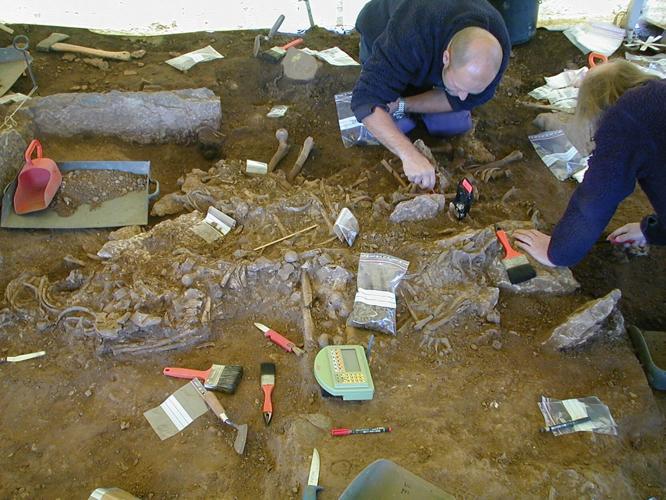Ancient Plague May Have Triggered Mysterious Population Collapse 5,000 Years Ago

- Update Time : Thursday, July 11, 2024

A new study based on DNA from 108 prehistoric individuals suggests that an ancient form of plague might have been widespread among Europe’s first farmers, potentially causing a mysterious population collapse 5,000 years ago.
Evidence of Ancient Plague
Researchers found traces of the plague bacterium Yersinia pestis in 17% of the samples, indicating the disease was prevalent among Neolithic farmers. This group, migrating from the eastern Mediterranean, brought agriculture to northwestern Europe.

Archaeologists excavate a grave in Frälsegården, Sweden, in 2001. DNA extracted from some of the bones revealed the presence of the bacterium that causes plague.
Genetic Clues and Hypotheses
The DNA evidence indicates three distinct plague infection events, suggesting the disease’s impact varied over generations. The study also noted genetic reshuffling in the bacterium, possibly affecting its virulence.
Implications and Debates
While the study suggests plague played a role in the population decline, other factors like agricultural crises and poor health may also have contributed. Some researchers believe a combination of these elements led to the Neolithic collapse.
Conclusion
The findings highlight the complexity of ancient population dynamics and the role of disease in shaping human history. Continued research is necessary to fully understand the interplay between pathogens and ancient populations.










Leave a Reply